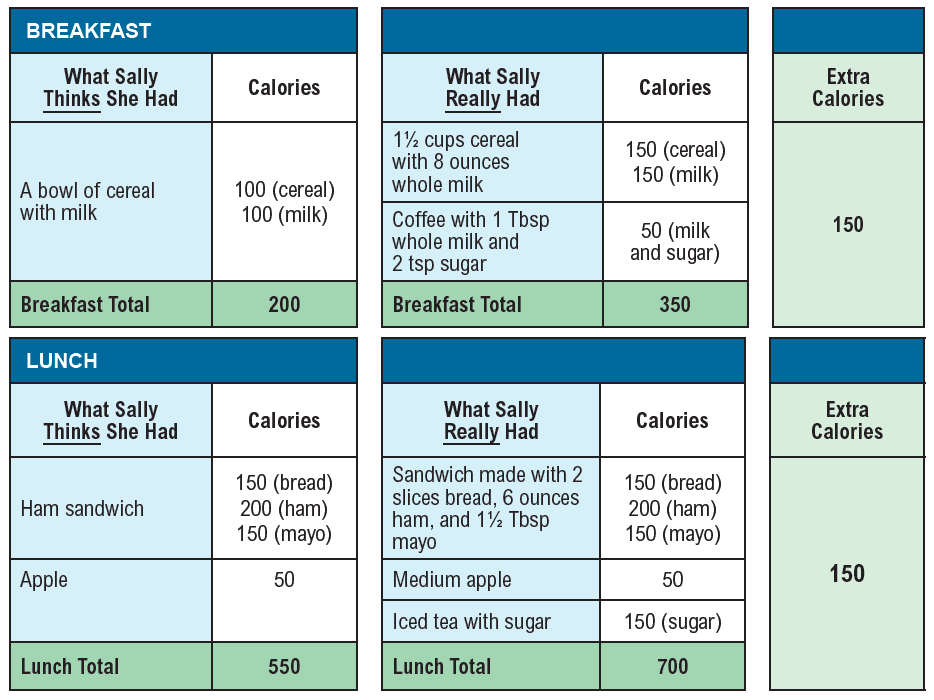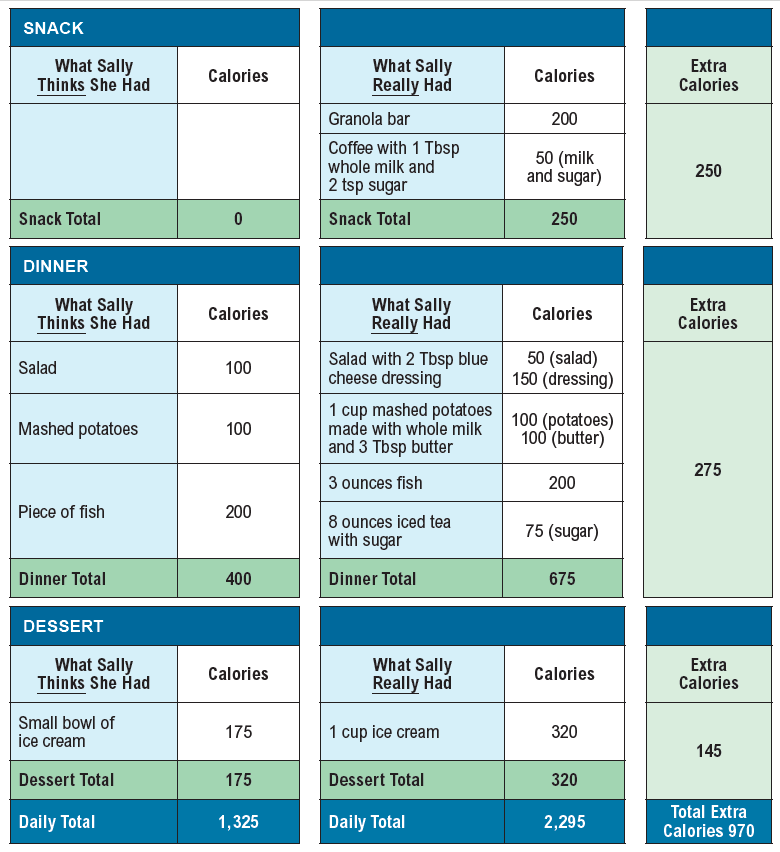Why food tracking matters
in this lessons, we’ll read sally’s story to see why it’s important to track calories
Have you ever wondered why it's important to track what you eat? Today, we'll answer that question. Sally thought she had 1,325 calories in a day, but she actually had 2,295 calories. That's a big difference! Why did this happen, you might ask?
The answer is simple: Sally didn't track exactly what, when, or how much she ate and drank. She thought she was eating less than she really was. And this is where tracking your food comes in. It's not about counting every bite you take; it's about knowing what's on your plate.
Sally’s Story
Sally is at risk for type 2 diabetes. She wants to lose 15 pounds. She has been trying to eat better each week. After a month, Sally tells her friend Tina that she is frustrated. She still hasn’t lost any weight. Surprised by this, Tina asks her to describe what she ate the day before. Sally tells Tina what she thinks she had. The table below shows what Sally thinks she had at each meal. It shows what Sally really had at each meal. It also shows the extra calories she took in.
By tracking your food every day, you're helping yourself work toward your six-month weight goal. Losing weight helps lower your risk of type 2 diabetes.
So, the purpose of tracking your food is clear - it helps you stay healthy by understanding what, when, and how much you eat. Remember, tracking is a powerful tool that will be with you on your journey to a healthier life. So, don't forget to record what you eat and drink every day. It's one of the best ways to take care of yourself. Stay tuned for the next lesson on how to start tracking your food. See you there!


